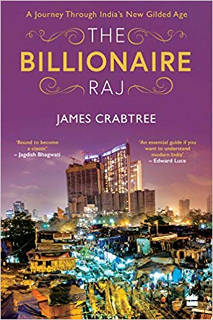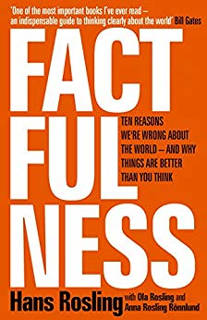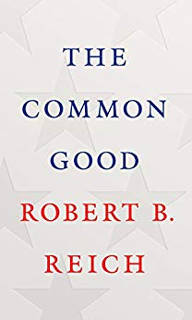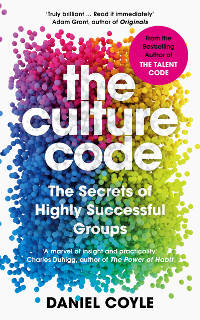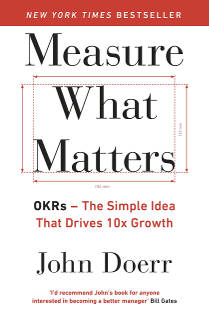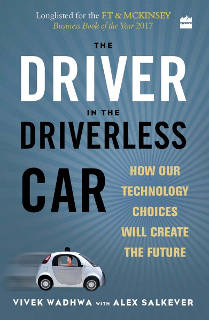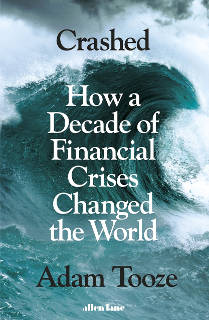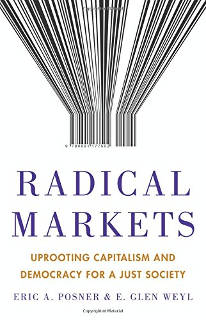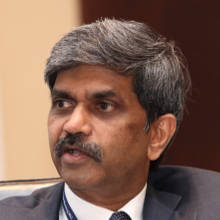[From Pixabay]
This year has seen business books on leadership, mindfulness, digital impact, culture and the slowdown of globalisation from a range of renowned authors. There is a growing number of Indian authors making their mark in the area of business literature this year. Even an avid reader cannot do justice to the range of books published in 2018.
This top 10 is my personal list of 2018. I enjoyed reading them, I benefitted from a different perspective and they were easy to read. The list is not in any particular order.
1. The Billionaire Raj by James Crabtree
James Crabtree was the Mumbai bureau chief for the Financial Times. His view of India is through the development of its billionaires. Raghuram Rajan once said that India has more billionaires per trillion of GDP than any other country. Crabtree traces the evolution of the billionaires, the influence these billionaires wield and the inequality it has generated. He looks at celebrated cases like that of Vijay Mallya and makes a case for the link between politics and money power. He does not provide any answers on how India should move ahead, but asks for more consciousness about how the super-rich work in India.
2. Factfulness by Hans Rosling
Hans Rosling was a professor of health, a doctor and a great TED speaker. This book was published posthumously by his son and daughter-in-law. Rosling is a positive man and feels that we as citizens consistently underestimate the progress we have made in the fight against poverty and overestimate progress made in some positive areas. In this book Rosling shows us with 80 charts, the quality of development progress. Rosling says “Having data is not good enough, the ability for people to understand data and enjoy it is more important.”
3. The Common Good by Robert Reich
Robert Reich was Labor secretary in the Clinton government. In this book he laments the decline of the common good in America. Common good is defined as “our shared values about what we owe one another as citizens bound together in society”. Reich argues that power and money have dropped our commitment to ideals and principles. Reich discusses globalisation, nature and future of work and inequality in a forceful way. Reich argues that we should honour whistle-blowers, social workers and soldiers and actually shame economic offenders, people who use the system for their narrow personal gains.
4. Talking to My Daughter About the Economy by Yanis Varoufakis
This book was written in nine days flat. The book was written to explain the history of capitalism in a conversational way. He explains supply, demand, pricing, and inflation through a simple example of cigarettes availability in a prison camp. The book is not exactly an economics for dummies, but it is economics for the uneducated, sans the jargon. Most economists hide behind jargon and catchy theory, but not Varoufakis. Money came into being when debt had to be recorded and Varoufakis argues that the industrial revolution happened because entrepreneurs used debt well to drive growth and not just the internal combustion engine. Varoufakis should know about debt as he was the Greek finance Minister in 2015. He is clear that central banks cannot work outside the ambit of politics. He is especially harsh on banks and the way they run.
5. The Culture Code by Daniel Coyle
Culture is a daily hot topic in business literature, more so in 2018. Coyle explores ‘group excellence’ in this book by studying the Navy Seals, Pixar teams, Comedy troupes and the San Antonio Spurs. He spent time with them, observed them, and spotted behaviour patterns and group dynamics. His study found three things that’s common to group excellence: 1) These groups build safety in each member of the team. 2) They share their vulnerabilities, and 3) They are clear about the purpose of the group. Coyle gives us a book full of psychology experiments and offers practical suggestions, many of which you can implement in everyday meetings.
6. Measure What Matters by John Doerr
This book is an unabashed tribute to Andy Grove, the late Intel boss by his subordinate Doerr. Business is wedded to numbers, metrics and PowerPoint presentations. This book is about OKRs—Objectives and Key Results—that Grove and Doerr ran at Intel. Doerr’s objectives are high-level goals and key results are memorable milestones on that goal journey. This book starts with the concept of OKRs and ends with an uncatchy acronym labelled CFR (conversations, feedback and recognition), which is taking OKRs to the next level through continuous improvement.
7. The Driver in the Driverless Car by Vivek Wadhwa
Wadhwa explores the relationship between human beings, technology and automation. He wants an ideal world where technology benefits all and reduces inequality. He outlines the risks and rewards of technology and asks if technology promotes autonomy or it makes us even more dependent on it? Wadhwa is a technocrat and not surprisingly a cheerleader for the ‘technology is good’ team. He cautions that privacy will be a concern with technology.
8. Crashed by Adam Tooze
This book is about how things were before the financial crisis of 2008 and how different constituents reacted to it. Tooze says that people assumed that things would continue to be fine before the crisis broke. Banks’ lending more than needed and the subprime crisis shook everyone’s comfort in the way banks and financial instruments were run and accounted for. The book looks at how the US, EU and China reacted to the financial crisis and how politicians took a convenient, parochial view in approaching the crisis. A collective approach would have been a better approach feels Tooze. All politicians except David Cameron come for harsh criticism. Tooze’s research points that politicians tend to take a political or vote base view of economics. What politicians, bankers and institutions can learn from the crisis is well articulated.
9. Radical Markets by Eric Posner
The free market system has come under scrutiny after the financial crisis. Posner argues that the open market is not the problem. The book shows how open free markets can revive trust, improve equality, promote prosperity and improve co-operation—something of an ideal situation. Posner also shows that rich countries tend to see immigration as a threat but actually shows how it is beneficial in the long run. Posner wants markets to be more open. In a digital world, ideas, intellectual property, innovation and talent matter. These are not valued in a physical world.
10. Fascism by Madeline Albright
Albright is a former diplomat and the first woman US Secretary of State under Bill Clinton. Albright emigrated to the US from Czechoslovakia in 1948 after Hitler’s hate war on Jews. Albright traces the rise of strongmen— Vladimir Putin, Recep Tayyip Erdogan, Donald Trump, etc. She abhors authoritarian rule and how these strongmen muzzle the freedom of press and how their behaviour impacts every level of society. She draws lessons from Hitler and Mussolini, how both were not elected but invited to form governments in the hope that the violence and strong-arm tactics that their party practised would stop once they were in power. What a wrong assumption! How does one deal with strongmen is something Albright reflects on in the book. She is the first person to label President Trump an anti-democratic president.

